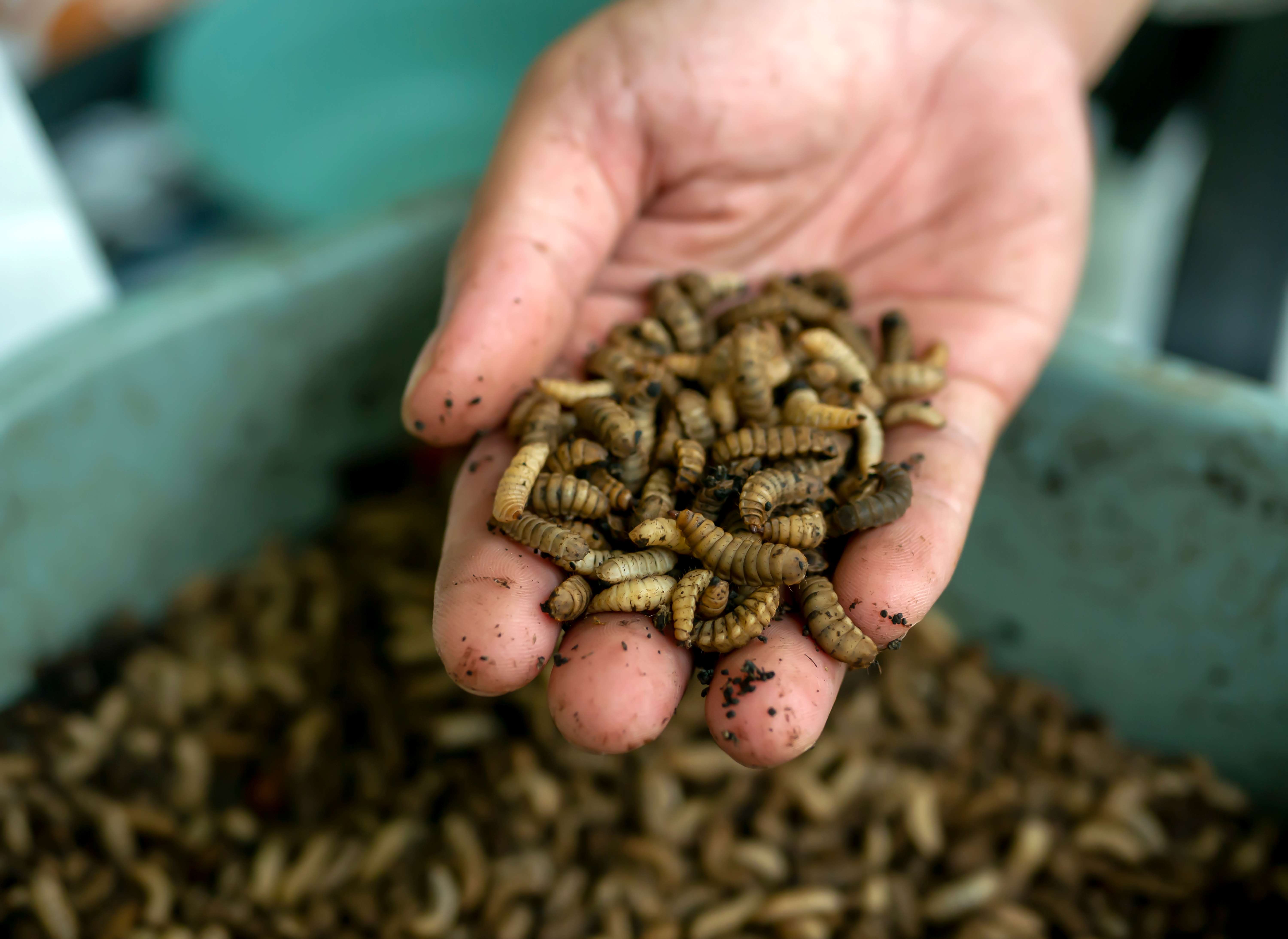Insects for animals and people
Precise dosing for creepy crawlies
As of September 2021, feeding approved insects to livestock such as pigs and poultry birds is permitted again. Insects are a popular form of animal feed, but farming the insects themselves is not as easy as some people think. Matters get even more complicated when insects are farmed for human consumption. Over the years, TEWE has gained extensive expertise in the feeding of insects and taken on a pioneering role to offer special advancements in insect feeding, such as ultra-precise dosing technology, reliable hygienisation, manual, semi-automatic and fully automatic process sequences, as well as in-house, individual controls for the liquid feeding systems required for this task.

Benefits
- Increased efficiency: Automated systems enable precise and efficient feeding which can save time and resources
- Consistency: Automation results in consistent quality and quantities of feed, causing the insects to develop at the same rate
- Control over the environment: Fully automated systems enable precise control of important environmental factors such as temperature, humidity and ventilation to ensure optimal conditions for the growth of the insects
- Reduced human error: Automation minimises human error in feeding and caring for the insects, leading to increased productivity and quality.
- Scalability: Fully automated feeding systems can be easily scaled up to meet the demands of growing insect farms without the need for additional manual work
- Cost effectiveness: Despite the high initial investment costs, fully automated systems save costs in the medium to long term by reducing labour and optimising feed consumption
Insects for livestock
According to the EU list, black soldier flies, house flies, flour beetles, cereal mould beetles, crickets, short-winged crickets and steppe crickets, or their flour, can used for feed. Beetles and flies are used in the larva stage, while crickets are used in their full-grown form.
Feedstuffs
Feedstuffs vary depending on the species of insect, so they come in many different forms. Grains, fruits, vegetables and plant remains are suitable, but since their nutrient content is not consistent, it is better to opt for a special-made feed mixture, as this provides consistent quality and balanced nutrition with measurable nutrient content. This allows the producer to be sure that the insects are receiving all the essential nutrients.
Water
All insects need water, too. TEWE technology ensures that each species of insect receives exactly the right amount of water either directly or indirectly with the feed.
Feeding
Large insect farms benefit from TEWE’s many years of experience in the feeding of small insects. Fully automated liquid feeding systems, which are also widely used in pig feeding, have proven particularly useful on large farms. Building on this, TEWE has developed special dosing technology and processes to double feed dispensing without sacrificing the precision of the quantities or drip-free dispensing.
This emerging animal-protein production industry is still partly in the developmental and experimental stage. It has to reconcile the many EU standards, insect husbandry requirements and customer demands with goal of profitability. This is where the individual solutions and comprehensive consulting offered by TEWE are particularly beneficial. TEWE’s innovative feeding modules are flexible and tailored, allowing quick and easy integration into individual insect feeding systems.
What does a feeding system need to be capable of?
The most important thing is absolute precision: while an extra microgram of antibiotic would be of little consequence for a fully grown cow weighing 600 kg – except in terms of cost – it would prove fatal for a 0.5 gram mealworm. And adding medicines to feed is important, because feeding insects can come with various issues, such as mould growth, parasite infestation and disease. Precise measurement of water/moisture is also vital. Further requirements:
- easy system operation, as programmed by TEWE
- low costs
- efficient shredding
- interruption-free logistics from beginning to end with semi-automatic and fully automatic robot-controlled processes
- optimal hygiene at every stage
In general, fully automated feeding systems enable more efficient, consistent and controlled insect production, which contributes to increased profitability and sustainability in insect farming.



